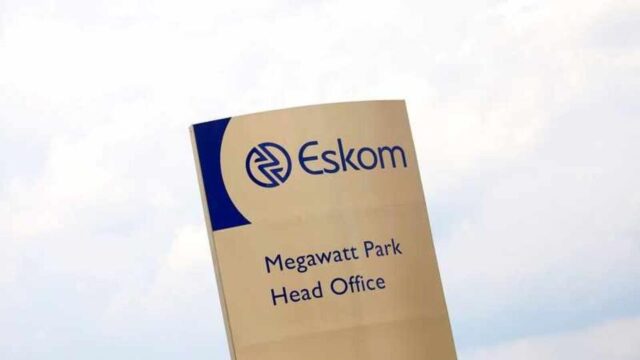OPINION: Governance in South African state-owned enterprises is hampered by the conflicts of interest driven by rent-seekers in cohort with the political elite, writes Bongani Mankewu.
By Bongani Mankewu
AS THE business sector and others see the Minister of Finance’s speech as progressive, especially in light of the R254 billion Eskom debt-relief package, the golden thread will be eroded by the inappropriate appointment of the new CEO.
State-owned enterprises (SOEs) experience poor governance, which is conducive to rent-seeking and corruption, especially among the political elite and some businesses.
A fresh approach to achieving effective governance must be envisioned in light of the rapid departure of Andre de Ruyter, the former Eskom CEO.
The lack of innovation weakens governance, institutions and regulation, limiting the ability of SOEs to compete globally and attract investment. This necessitates a radical reform of the system. However, in development economics, this implies that pre-existing institutional conditions greatly influence reform efforts.
Establishing an innovative process for this critical appointment that adversely impacts citizens and the economy is one opportunity not to be missed.
A panel of engineers and industry experts must be gathered to select five candidates for the CEO role. Included should be the identification of two additional special advisers to the CEO. It is indispensable to assemble a panel of experts from relevant industry bodies such as the Engineering Council of South Africa (Ecsa), Consulting Engineers of South Africa (Cesa), Institute of Directors South Africa (IoDSA), and South African Chamber of Commerce and Industry (Sacci), along with academics and relevant trade unions.
Eskom must solve two fundamental problems: structure its debt to manage its liquidity and remain viable, and maintain its lights, which require electrical engineering. The idea is to find the most qualified candidates with expertise in engineering and finance with no compromise.
This panel is expected to present candidates who can inspire confidence in the business community and the general public. Realistically for the conditions of Eskom, the CEO candidates should have combined engineering expertise with financial acumen. In addition, the two special advisers should be trained in finance while having engineering acumen and vice versa.
This is not an idiosyncratic model. The Judicial Service Commission uses a similar model for appointing judges. The panel must present five names for consideration to the Eskom board. Recently, the South African Revenue Services’s Commissioner was appointed by a panel of individuals though the selection rationale for those individuals was unclear.
There should be a clear mandate for this team to fix the Eskom debt and eliminate load-shedding within specified time frames. To ensure clear governance execution, it is necessary to devise a hybrid approach that combines the Companies Act and Public Finance Management Act.
Eskom has been recognised since 1923 when Hendrik Johannes van der Bijl was appointed chairperson by the South African Electricity Control Board under the Electricity Act of 1922. Van der Bijl was given autonomy to drive the utility, which resulted in a massive industrial success for the overall economy of South Africa.
It is not necessary for a Minister of Electricity to be appointed but rather for an office of the CEO to be established at Eskom with competent people, hands, and experience to restore this utility to its erstwhile glory.
In their capacity as a newly formed team with specific time frames, they will present their turn around plan to the board, which they must package with other executives of Eskom. Boards, not ministers, must monitor Eskom’s turn around strategy once it has been approved, and all ministers must remain hands-free when it comes to its operations.
Eskom is a Leviathan that is killing us all. If engineers and patriotic groups don’t bring their expertise to the party, despondency and despair will rule. In that case, if institutional conditions prevent the most efficient result, then the polity is trapped in an irreversible state of sub-optimal.
* Bongani Mankewu is an associate of the Infrastructure Development & Engagement Unit at Nelson Mandela University. He writes in his personal capacity.
– BUSINESS REPORT








